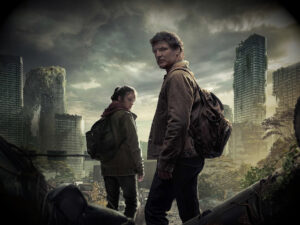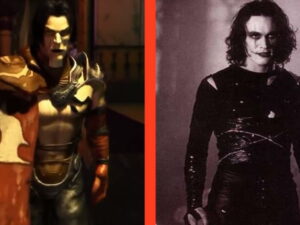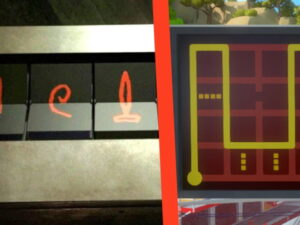Cut Scenes is Josh Wise’s regular column on the intersection between films and video games. This week, it’s Mafia III vs. Clint Eastwood’s Unforgiven.
It’s a wonder that dramatic irony is as underused as it is in games.
Much is made of the gap between narrative and gameplay; little is made of the inherent opportunity therein. There are stars that twinkle, here and there. Halo: Reach used it to devastating effect, its entire campaign leaden with the knowledge that you were fighting in vain (remember Reach!) while Andrew Ryan’s coup de grâce made us feel our control ebb away like blood on the tide. But these are grand designs, ones assembled across the course of epic tales; there are smaller, more intimate moments out there.
Hangar 13 teed up just such a moment in Mafia III, leaning on classic Hollywood for some shorthand oomph. Returning from the psychotropic bloodshed of the Vietnam War, any chance of a normal life for Lincoln Clay is barely visible through the purple haze. It’s dashed completely when a murderous double-cross lands him without his family, angry, initially in a coma, and exiled by the aristocracy of New Bordeaux’s criminal underworld.
Early on, in the mission ‘A Friend in Jesus’, you’re forced to make a stark choice. Stood in a church as Father James Ballard – an adoptive uncle and spiritual mentor – tries to talk you out of going down the road you’re set on, control is handed over to you. Of course, you aren’t to make the choice; it’s been made already. We know it has because otherwise we wouldn’t have a ball game, but also, we know because we’ve been here before.
There’s a similar scene in Clint Eastwood’s Unforgiven, in which his character, former bandit and renowned killer William Munny, is attempting to shake off the rust of years of retirement by shooting at bottles on his ranch. His shot isn’t as true as it once was, and the scene is played for laughs when he goes to retrieve a shotgun in order to hit the bottles as his two young children look on in fascination.
This humour belies a tragic sadness. Munny’s decision has been made: he is a man of violence, returning to violence. The close-ups of the faces of his children carry weight; he knows he is leaving them behind, and the domestic idyll he’s built, to return to another world howling at the fringes of this one.
It’s a trope that’s shown its face a number of times in film. The rusty warrior makes a decision between two lives, moving forward or going back: Creacy in Man on Fire practicing his bullet-catch trick, the titular hero in John Wick hammering away at his floor with a sledgehammer to retrieve his gun stash, or even Tom Stall in A History of Violence making the snap-decision to leap into action and save his diner. With Mafia III, there is a pulp sensibility to the dripping symbolism of the scene.
Having us walk away from Father James Ballard and from turning the other cheek (“Problem is, that don’t work. Not in the real world.”) Hangar 13 is on the nose in setting us in a church. Furthermore, the scene is a little heavily contrived: ‘Desperation’ by Steppenwolf plays – not over any kind of radio but non-diegetically for our sole benefit – as we walk Lincoln down the aisle past the pews, his back to the cross at the alter and marrying himself instead to a life of crime, we exit the double doors out into the streets.
It’s a meaningful transition, that, and one that brings to mind something closer to Hangar 13’s subject matter. The opening sequence to Martin Scorsese’s Mean Streets echoes through our ears as Lincoln steps onto the concrete: “You don’t make up for your sins in church. You do it in the streets. You do it at home. The rest is bullshit and you know it.” Perhaps there’s hope for Lincoln yet.












